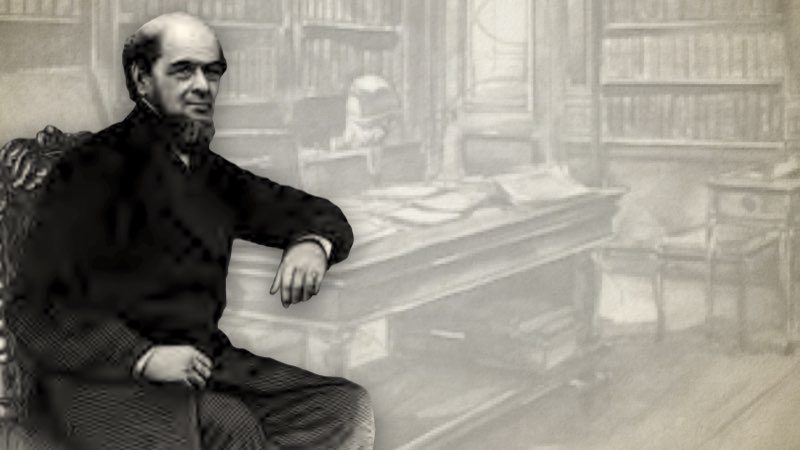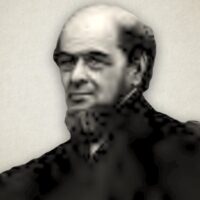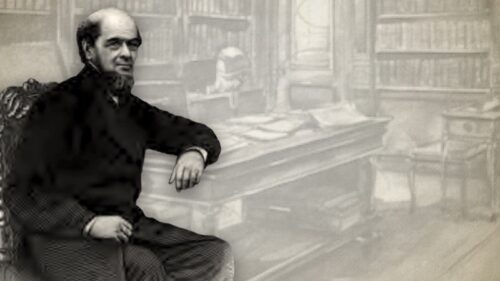
Pastoral Counsel
[The Following Letter Was Written From France To The Church And Congregation At Clifton.]
My Dear People, to whom it has pleased the Lord to lead me to preach the Word of life, you have a very large place in my affections, and often are my thoughts wafted across sea and land to you collectively and individually, and, what is of far more importance, my desires for your souls’ welfare are often wafted to the Eternal Throne. What a mercy is a mercy-seat, the blood-sprinkled meeting place of the saints, wherever they may be cast by the providence of God. If we get nearness to the throne of grace we cannot be far distant from each other. This nearness is a blessing I earnestly wish both for myself and all saints, especially for the saints meeting at Clifton Chapel. This nearness in peace by the shed blood, with boldness by faith in the promise, and with warm affections through the Spirit of adoption, is one of the greatest blessings on this side the land that flows with milk and honey. O seek it, dear friends, perseveringly seek it. I know it is a blessing that many of you are earnestly seeking. Oh, the evils that come to the Christian in a state of distance from the mercy throne! This is the hour of advantage to Satan. That wolf rends the strayed sheep, but slinks away from the presence of the Good Shepherd. O that we may in sweet enjoyment lie in His bosom, and in active service be led by His gracious hand!
“I would-be near His feet,
Or at His wounded side;
Feel how His heart doth beat,
And view the purple tide;
Trace all the wonders of His death,
And sing His love in every breath.”
A time of distance from the throne of grace is the time for our garden of graces to droop, and our weeds of corruption to flourish. The most prayerful is always the most fruitful Christian. With our backs upon the throne we are like the earth turning from the sun. Then the beasts of prey prowl forth and seek to do deeds of blood. Then the birds of paradise fold their wings and are mute. Oh, if we do really want sin to be weakened in us, and grace to be strengthened in us, let us seek more earnestly to live in prayer. When we wander from the mercy-seat then is the time that this poor world grievously engrosses us; then it is that we are ready mournfully to say—
“Hardly sure can they be worse,
Who have never heard His name.”
Leaving the mercy-seat is the needy one leaving the fulness that alone can supply him; the helpless one ceasing to lean on the only arm that can hold him up; the sick one leaving the physician; the sheep leaving his green pastures; the parched one leaving the fountain of living waters; the famishing one leaving the well-spread table; the child leaving his father’s roof; the bride leaving the bridegroom’s company; the traveller leaving his guide.
Oh! leaving the throne is “forsaking our own mercies.” I know your helplessness, for I feel my own; but I know also my idleness. I feel quite sure, and want to learn experimentally, that the diligent soul shall be made fat; but, alas! I know too well, the idle soul shall suffer hunger. My dear friends, the life of religion is living prayer. It is spiritual respiration, it is indeed the heaving and breathing of the spiritual lungs. Lord, make me and my dear people wise enough to leave off speculating, and begin in earnest praying.
“The feeblest prayer, if faith be there,
Exceeds all empty notion.”
While others quarrel and split hairs, may we be led to take the martyr’s advice—“Pray, pray, pray;” or what is better, may the Gospel precept be ours practically, “Pray without ceasing.” But who is sufficient for these things? What can weakness do? Nothing; no, nothing right without the gracious teaching of the Holy Spirit. I believe those make a serious mistake who think they are not to try to pray until they are sure they are led by the Holy Spirit. I believe we are to wait upon the Holy Spirit, as well as wait for the Holy Spirit. O may you be enabled at all times to go, whatever you may have to groan about, and cast yourself in all your nakedness, pollution, and poverty, at the foot of that throne where mercy is to be found, and grace to help in time of need is given; and may you never forget your poor, and needy, and unworthy servant in the Gospel. In this land of superstition and darkness I often think of our home mercies. It is awful to see here open bowing down to senseless images, and to know that the people are by thousands confiding their souls to the care of creatures as dependent as themselves: and it is sad to find no Gospel preached in English, nor even any little gathering of spiritual people to worship God. Two poor Frenchmen preach, I hope, the Gospel of sovereign grace; but, out of many thousands of their countrymen here, not thirty will hear them, both put together. I have found one Frenchman and one English woman with whom I can have communion, and that is all at present. I long to proclaim a full salvation to the masses here, but know I must now rest. O that all of you who know the Lord could make it a matter of conscience to let nothing but the most lawful hindrances keep you from your place every time the chapel doors are open. We know not how long we may have the light of these privileges, and while we have the light let us walk in the light.
I have had the manifest people of God in view in this letter, but I do not forget others. Some will hear this letter who know nothing of crying from their hearts for mercy through sin-atoning blood. Oh, my dear friends, may the Lord in great mercy open your eyes, and lead you to Him who will never turn a deaf ear to the cry of a supplicant whose only plea is the promise sealed with blood. I rejoice much to hope that several young people have their faces turned Zion-ward. I am often thinking of you, my dear seeking friends, and anticipate the glad voice of thanksgiving that I hope soon to hear from some of you. Seek, dear friends, seek and wait; plead the promises, throw your perishing souls at the foot of the cross, and there condemnation can never reach you. You will all be glad to learn that I quite hope to return to you with my health and strength greatly increased, though at present I am still suffering with my arm and neck, but a little amendment makes me trust it is beginning to get well. May the Lord greatly bless my visit. Everything in nature here is lovely, but nothing outward can be a substitute for communion with the saints and the preaching of the precious Gospel of Christ, I must now say adieu. God bless you all, is the sincere desire of,
Yours affectionately,
S. Sears
Septimus Sears (1819-1877) was a Strict and Particular Baptist preacher and writer. In 1842, he was appointed pastor of the church meeting at the Clifton Strict Baptist Chapel, Bedfordshire, a position he held for thirty-five years. He was also editor of two magazines, “The Little Gleaner” and “The Sower”. George Ella wrote of him:
“Septimus Sears, renowned in England as one of the country’s most outstanding pastors and preachers, started his ministry at the age of 20 before taking over Clifton Strict Baptist Church, Bedfordshire which he shepherded from 1842 to his death in 1877. Sears suffered all his life from severe heart trouble and was burdened by long periods of paralysis and typhus. His neck bones were so deformed that he had to wear an iron collar to support his head. Nevertheless, he preached three times on the Lord’s Day and often during the week. He edited two Christian magazines, The Little Gleaner and The Sower, and published many sermons besides a number of popular hymnbooks and poetical works. The invalid pastor-poet established a school for poor children, founded organisations to care for orphans and the needy and erected homes for widows and the aged. He believed that gospel witness should be social and practical as well as spiritual. His labours were immense in the Lord and certainly not in vain.”




